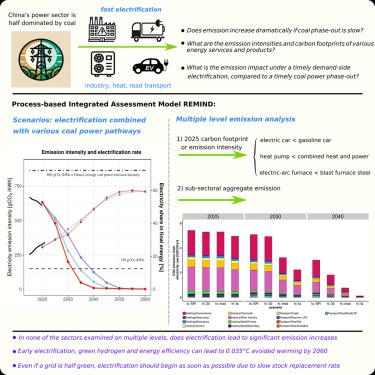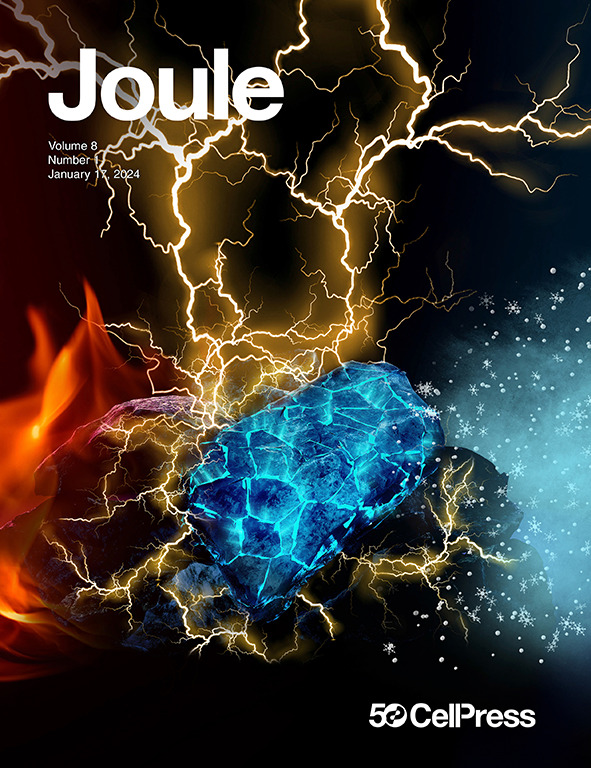Multilevel emission impacts of electrification and coal pathways in China’s net-zero transition
IF 35.4
1区 材料科学
Q1 CHEMISTRY, PHYSICAL
引用次数: 0
Abstract
Decarbonizing China's energy system requires both greening the power supply and electrifying end-use sectors. However, concerns exist that electrification may increase emissions while coal power dominates. Using a global climate model, we explore electrification scenarios with varying coal phase-out timelines and assess their climate impact on China’s sectors. A 10-year delay in coal phase-out could increase global peak temperature by about 0.02°C. However, on a sectoral level, there is no evidence of significant additional emissions from electrification, even with a slower coal phase-out. This challenges the sequential “order of abatement” view, showing electrification can start before the power sector is fully decarbonized. As long as power emission intensity drops below 150 gCO2/kWh by 2040, electrification can substantially reduce the carbon footprint of buildings, steel, and transport services, and along with energy-efficiency measures, it can avoid approximately 0.035°C of additional global warming by 2060.


电气化和煤炭途径对中国净零排放转型的多层次排放影响
中国能源系统的脱碳需要电力供应的绿色化和终端用电部门的电气化。然而,人们担心,在煤电占主导地位的情况下,电气化可能会增加排放。利用全球气候模型,我们探索了不同煤炭淘汰时间表下的电气化情景,并评估了它们对中国各行业的气候影响。煤炭淘汰推迟10年可能会使全球峰值温度升高约0.02摄氏度。然而,在部门层面上,没有证据表明电气化会带来显著的额外排放,即使煤炭淘汰速度放缓。这挑战了顺序“减排顺序”的观点,表明电气化可以在电力部门完全脱碳之前开始。只要到2040年电力排放强度降至150 gCO2/kWh以下,电气化就可以大幅减少建筑、钢铁和运输服务的碳足迹,再加上节能措施,到2060年,电气化可以避免大约0.035°C的额外全球变暖。
本文章由计算机程序翻译,如有差异,请以英文原文为准。
求助全文
约1分钟内获得全文
求助全文
来源期刊

Joule
Energy-General Energy
CiteScore
53.10
自引率
2.00%
发文量
198
期刊介绍:
Joule is a sister journal to Cell that focuses on research, analysis, and ideas related to sustainable energy. It aims to address the global challenge of the need for more sustainable energy solutions. Joule is a forward-looking journal that bridges disciplines and scales of energy research. It connects researchers and analysts working on scientific, technical, economic, policy, and social challenges related to sustainable energy. The journal covers a wide range of energy research, from fundamental laboratory studies on energy conversion and storage to global-level analysis. Joule aims to highlight and amplify the implications, challenges, and opportunities of novel energy research for different groups in the field.
 求助内容:
求助内容: 应助结果提醒方式:
应助结果提醒方式:


